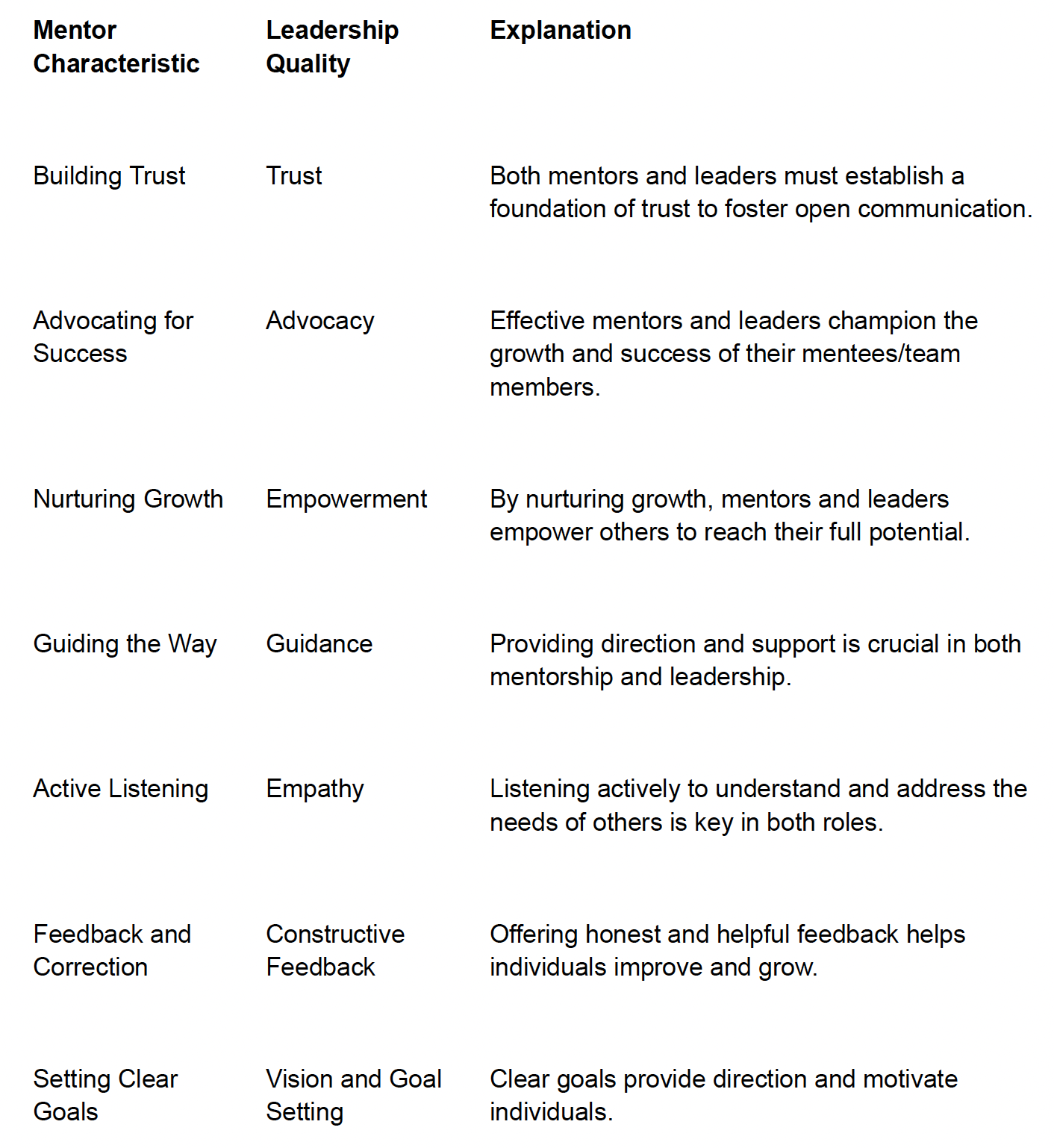Sustainable Leadership through Altruistic Mentoring
Sustainable Leadership through Altruistic Mentoring
Elke Greite
Dresden International School
Mentorship isn’t just about guidance—it’s about transformation. Studies reveal that mentored individuals are significantly more likely to excel in their careers, underscoring the profound impact of effective mentorship on leadership development (Clutterbuck, D., & Megginson, D. (2016). Making Mentoring Work. Harvard Business Review).
Being mentored can be life-changing – everyone can benefit from having the support of a mentor at different stages in their lives and careers – ECIS.
My journey as a mentee has been transformative. The mentoring support I received has shaped my professional growth and self-advocacy while confirming my insights into the characteristics of rare altruistic leadership.
How can leaders transform their teams through both mentorship and altruism, fostering advocacy and empowering future leaders?
When I first joined the ECIS Mentoring programme, I was eager but uncertain about how to proceed with my diverse aspirations and long-term projects. Meeting my mentor every four weeks for a year was a privilege, allowing me to benefit from her extraordinary experience in mentorship and educational leadership. Her empathy and approachability created a trusting environment where I felt safe to share my challenges and aspirations. Leaving her professional demands aside, she was always actively listening and provided constructive feedback or inspiration that helped me navigate my career path more confidently. One of the most impactful moments was when she helped me see my potential during a time when inflexible structural conditions seemed to block my development, encouraging me to push beyond my perceived limits.
What Makes a Great Mentor?
- Mentorship becomes not just about guidance. For me, the personalised approach made the transformative difference. I felt seen and valued for my commitments, contributions, and achievements. This made the mentorship effective, as it was rooted in a deep understanding of my individual needs and aspirations—an experience that was completely new to me throughout my career. It contrasts with feeling used. A great mentor possesses qualities that deeply resonate with their mentees. Here are some key takeaways that made my mentorship truly impactful:
- Active Listening and Understanding: Feeling genuinely heard and valued for commitments, contributions, and achievements.
- Empathy and Approachability: Fostering a trusting environment where open communication can flourish. It allows mentees to share their challenges and aspirations without fear of judgment.
- Integrity and Consistency: Integrity and consistent support or check-ins make a mentor a reliable guide.
- Vision and Advocacy: Proactively reacting to aspirations with creativity and reasonable risk-taking to enable the mentee to excel.
- Encouragement and Empowerment: Inspiring belief in one’s abilities and striving for professional or personal growth.
Thank you, Jenny O’Fee.
I am profoundly grateful for the trust in me and the growth and insights I have gained through remarkable mentoring skills and exceptional leadership. Going up the dunes without wooden ladders can, at first, seem harder because we focus on reaching the top as quickly and comfortably as possible. By using the ladder, however, we miss out on creatively discovering the different sand conditions and enjoying the journey. Knowing there are various pathways over a dune, which constantly adjusts to external influences, was empowering. It enabled me to value the process and interim goals, opening up unpredictable perspectives.
The Interplay of Mentoring and Effective Leadership
Within inquiry-based classrooms where students navigate their learning journey independently, the teacher often becomes less visible, stepping back to allow students to explore topics driven by intrinsic motivation. This approach shifts the focus from the teacher as a sole authority figure to a facilitator who supports and nurtures each student’s unique learning path.
Naturally, therefore, mentoring plays a vital role in identity-centred learning processes, where teachers actively stimulate, guide, and foster the individual development of each student. In my Visual Arts classroom, students are encouraged to define personal themes as overarching concepts for their projects. This partial mentoring process focuses on the individuality of each student’s creative expression, fostering an environment where diverse styles, media/techniques, and intentions can flourish and develop a coherent vision. In the IB Diploma Visual Arts course, one of the components asks the students to work towards a culminating final exhibition that showcases their achievements, highlighting their journey rather than the teacher’s influence. The teacher’s role here is to provide the necessary context and support, adjusting to the needs and aspirations of each student, embodying a selfless, donor-like quality that focuses on the student’s growth and success.
This teaching approach demands a significant degree of selflessness. Teachers act as altruistic benefactors, providing the necessary support and resources while allowing the students’ voices and visions to shine through.
Leaders who maintain a direct and authentic connection to the classroom, perhaps by continuing to teach, can maintain or develop mentorship qualities. This allows them regular insights and hands-on experiences. In doing so, these leaders refine their mentoring skills and embody a form of leadership that puts the well-being and development of others first.
Mentor Characteristic Leadership Quality Explanation
 Mentor characteristics, adapted from What Are the 4 Cs of Mentorship: A Comprehensive Guide, Omer Usanmaz
Mentor characteristics, adapted from What Are the 4 Cs of Mentorship: A Comprehensive Guide, Omer Usanmaz
Altruism: A Rare but Sustainable Leadership Quality
An altruistic approach to leading is necessary for this, but this quality is uncommon.
In a world where leadership often focuses on results and performance metrics, leaders who prioritize empathy, compassion, and the genuine growth of others and their teams stand out, fostering a culture of trust and mutual respect. While rare, the impact of altruistic leadership is immense. Their altruism fosters a positive and productive environment and inspires others to adopt similar values, resonating through the teams they lead and the cultures they build.
Mentorship opportunities abound, and I urge everyone to engage in this rewarding journey, whether as a mentor or a mentee. By fostering altruistic leadership, we can build a more sustainable path to strengthen educational institutions and their purpose of learning, contrasting the typical alpha climate and approach to professional superiority.
True active listening challenges self-motivated leaders, fostering emotional intelligence.
Without their willingness to reflect and engage deeply with others, they hinder their potential to become sustainable and impactful altruistic leaders. Embracing this reflective practice not only enhances personal growth but also cultivates a leadership style that truly values and uplifts others.
About the author

Elke Greite holds a master’s degree in education and has completed the ECIS Middle Leadership program and the Thinking Collaborative Foundation Seminar on Cognitive Coaching. With 23 years of experience in the International Baccalaureate Middle Years Programme (IBMYP) and Diploma Programme (DP), she currently serves as the Visual Arts and Theory of Knowledge teacher and the Head of The Arts and Design and TOK coordinator at Dresden International School, Germany.
She is deeply committed to advancing DEIJ, student voice, and global citizenship in education. Passionate about mentoring and coaching, she is dedicated to helping others reach their full potential. As a department head and mentor both within and outside of school, she has focused on developing inclusive and culturally responsive curricula. She believes that a sense of belonging is fundamental, providing individuals with a feeling of being truly seen and valued within their communities. By prioritizing identity-centered learning, she empowers learners to thrive academically and beyond. For her, student agency and leadership, along with critical thinking and creative global skills, are essential catalysts for student flourishing.
Website: https://www.inspireteaching.net/
Linkedin: https://www.linkedin.com/in/elke-greite-inspireteaching/
Bibliography
Clutterbuck, David, and David Megginson. Making Mentoring Work. Harvard Business Review, 2016.
Clutterbuck, David. Everyone Needs a Mentor: Fostering Talent in Your Organisation—Chartered Institute of Personnel and Development, 2014.
ECIS. “Being Mentored Can Be Life-Changing – Everyone Can Benefit from Having the Support of a Mentor at Different Stages in Their Lives and Careers.” Educational Collaborative of International Schools (ECIS), 2023. ECIS. www.ecis.org/mentoring
Usanmaz, Omer. “What Are the 4 Cs of Mentorship: A Comprehensive Guide.” Drive Careers, Skills, Inclusion | Qooper Blog, Qooper.io, 27 Sept. 2023. Qooper. Accessed 6 July 2024
You might also like...
Rethinking Recess: 7 Steps to Foster Engagement and Inclusion
16th January 2025
Reimagining Leadership in International Education: A Futures-Focused Approach
4th February 2025
The sea belongs to me again: Steering my disabled body through an able-bodied world
4th November 2023
International Coach “State of the Industry” Survey 2023
20th November 2023
Assessment 3.0 – Aligning K-12 education with life beyond school
23rd June 2025
